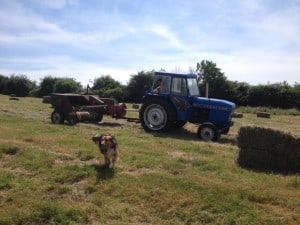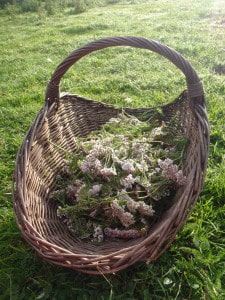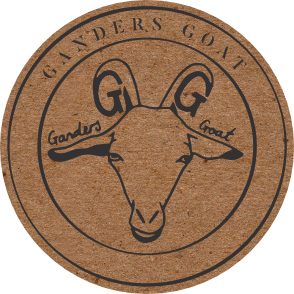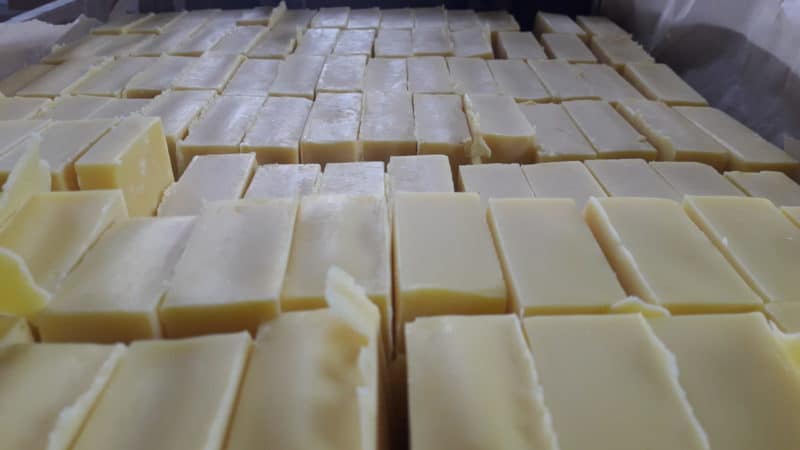I have recently had a number of people who have sensitive skin visit my market stalls and they have all asked me what are the benefits of goats milk soap. Let me tell you.
Sore, itchy, patchy, sensitive, dry, irritable, cracking, red, blistered, crusty, flaky, scaly, swollen. Any of those words can describe any number of skin conditions, but most describe the effects of the different varieties of eczema or psoriasis.
Don’t pull the Trigger!
The NHS says that the exact causes of these skin conditions are not due to one factor, but they often occur in people who have sensitivity to allergens. Eczema and psoriasis can run in families and sometimes occur in conjunction with asthma and hay fever. Treatment for these skin conditions can take many forms and work to varying degrees but most treat the effects and not the cause. The NHS recommends ways to help your skin; you can find your own particular variety of condition and look at what they suggest is the best form of treatment on their website or talk to your GP. But you can self treat, trying to reduce scratching and avoid your triggers. Use emollients, these are moisturising treatments to calm your skin, and topical corticosteroids (with a prescription) to be used when you have flare-ups to treat your itching and redness. Antihistamines can reduce itching but so can avoiding what makes you itchy.
At our farm I definitely have this problem, and I cannot avoid my triggers; I have hay fever and have done since I was a little girl so hay making is hell, I dose up on antihistamines, put on long sleeves, wear gloves and tuck everything in to stop those grass seeds for the 1-2 weeks that we make hay and everyday for the rest of the year when I give two bales of hay every morning to our goats. I’m constantly in contact with mine triggers, I try to be good and not scratch. Sometimes it’s just impossible to avoid what makes you itch but we all try to find some kind of balance, my KISS and Farmers soap is my balance.

Why Ganders Goat Milk Soap?
I met a lady a few weeks ago who had a list of things to avoid provided by her dermatologist. She carried it with her everywhere, just to check whenever she bought anything. She would stop, get it out, read the labels and only if there were none of the triggers of her skin troubles,then she would buy. After saying ‘No, really that’s all there is in it!’ after she read my label she went away the happy owner of some KISS soap.
We use minimal ingredients, nothing unnecessary, no extras. I made it this way because I react to all sorts of daft things; I had dry, itchy, cracked skin that sometimes the balms and potions from the doctors helped but didn’t offer a lasting cure, it always came back. I would rotate the moisturising creams I used since when I used one for too long I started to get all blotchy from it. I had read, whilst researching about goat milk, that goat milk soap was delicate and gentle to skin, breaking down the bonds between the dead skin layers leaving you with soft skin; Excellent, so where do I buy it? Well, more research showed many producers used a minimum of 6 ingredients, so instead we made our own soap, our mission to create a minimal ingredient soap.
We had an excess of milk from the goats but what to combine it with? The first step was to include rapeseed oil. I had previously used it during baby massage and knew that it was moisturising without the oily residue. I trusted it because who wouldn’t after you’ve put it on your own hands and massaged your 4lb 3oz baby and have had no ill effects? Let alone all the other mums at the baby massage groups using it with no problems. To me it was a logical choice, and I could get it locally. I already used it in cooking and salads. We can see many fields of rapeseed from the farm, there are local UK producers really close to where we make our soap, so why would we choose to go and use anything else?
Many soaps also use palm oil, although sustainable sources are meant to be available, even these are being brought in to question. Palm oil is used to make soap hard but following a lot of experimenting we got rid of it by using coconut oil, which produces a great lather, instead! Eventually we reached our goal, the KISS goat milk soap. Why KISS? Well it stands for ‘Keep It Simple Soap’.

What’s not in it!
No palm oil
No preservatives
No SLS
No hidden ingredients
No GM crops
Free from parabens
Keeping It Local
KISS soap is suitable for any age and skin type. What do we use? My own goat milk, milked by my husband or myself at our farm, with help sometimes from William, who likes to work the head yoke levers and fill up the food buckets. You can get to know our goats on the ‘Meet The Herd’ page. We use local rapeseed oil sourced from producers less than 20 miles from Ganders Farm. In our Bee Happy and Gardeners soap we use Honey from our bees kept at Ganders Farm, extracted and bottled by us (they rent hives in the vegetable plot at a cost of some honey extracted in the summer; we never take all the honey as we like to leave them with almost half of what they produce and feel that they would get through the winter better if they feed on their own stores rather than man made fondant). Did you know it takes about 55000 miles of flight to make a pound of honey? This summer we collected 40lb from just one hive (mostly foraged from rapeseed), so that means the bees would have flown nearly 2 million miles and visited 72 million flowers! Therefore it would take 8 jars to go to the moon and back! What busy bees!
Inspiration for the yarrow in the Gardeners Soap comes from its abundance within our top paddock and the surrounding roads within the county. It takes up to 14kg of flowers to make 1ml of the essential oil, a very tricky process that I’m not set up for. The tolerances to extract the oil are very fine, it’s so easy to mess up so we leave this to others, but I do source from the UK. It is said to be anti-inflammatory, helps to maintain healthy and scar free skin, helps with the effects of colds and has emollient qualities. However it can negatively affect some skin conditions, although our dilution level should avoid this but if you are not sure, we recommend you test on a small area first. More information can be found on the links below. The only ingredient not sourced directly from the UK is the coconut oil but I’m sure given enough time (warmer climate, sunshine and magic money trees) maybe we could do something about this as well!

Where to go from here?
How many creams or different treatments have we all tried to counter these annoying conditions? What ingredients are we trying to avoid this week? What has the NHS recommended we avoid, what should we do, try and eat to help? What are we willing to do to help ourselves not itch? Is it not worth giving goat milk soap a try?
Further reading
Look here for help with your skin
Look here for more information on Goat milk, coconut oil and yarrow
Here for more specific information on yarrow oil
www.oilhealthbenefits.com, www.permaculture.co.uk
Here for information about yarrow
www.wildflowerfinder.org.uk, www.aromatherapylibrary.com, www.handmadeapothecary.co.uk, www.theherbalguy.com
and here for some history behind yarrow’s name


What a wonderful journey you have been on..thank you for the information above…so refreshing to see an honest and sensible description…I will be purchasing some soap….and I wish you and your little
family all the best..
Kindest Regards
Dawn
I found the story of your journey so far very inspiring, I love what you are trying to achieve with your lifestyle, business and for wildlife. I’ve ordered your soap for my husband to help with his psoriasis and I’m looking forward to receiving it. Best wishes to you.